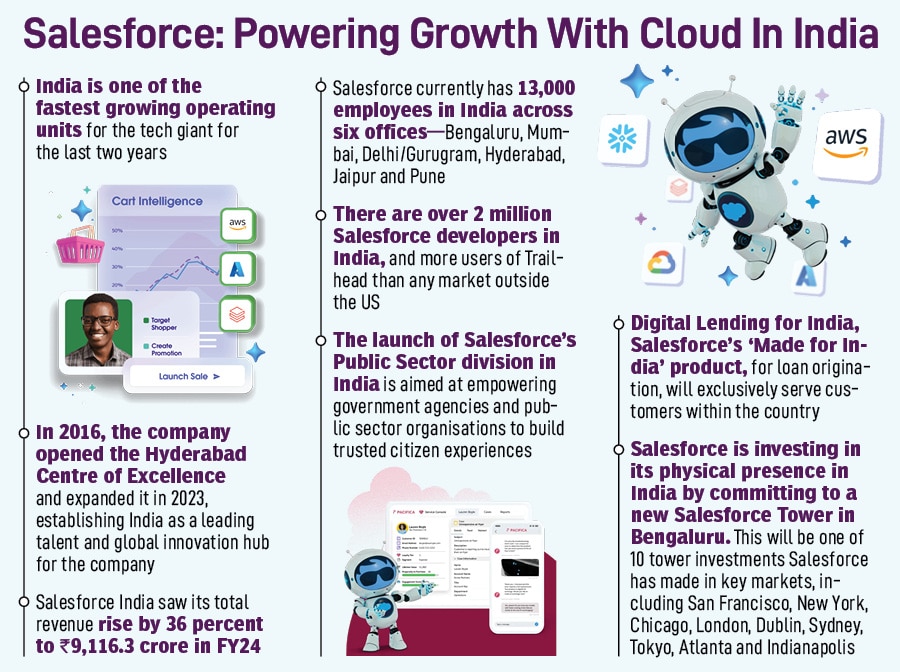On December 12, the Mumbai startup announced it has raised $40 million in Series B funding, led by Lightspeed Venture Partners, with participation from Lightrock. The investment is the largest such round in a solar startup in India, the company said in a press release. Existing investors Elevation Capital, Rainmatter, Gruhas Proptech and Lowercarbon too joined in.
For India to keep its promise of hitting net-zero carbon emission by 2070, switching to renewable energy is an imperative, and startups such as SolarSquare can play a leading role in the transition. India’s fragmented residential solar market is estimated to have technical potential of more than 600 GW of rooftop solar alone, which, however, plummets to only 11 GW once economic viability is taken into account at the household level.
This is where companies such as SolarSquare are innovating to try and move the needle.
While the proportion of Indian households with solar power is as low as only 1 percent by some estimates, “India’s residential solar story has turned a page in the last two years,” SolarSquare co-founder and CEO Shreya Mishra tells Forbes India.
An important reason for this is government financial support, by way of subsidies, has been enhanced, and regulatory clarity on areas such as “net metering” has been forthcoming. Net metering refers to solar panel owners giving excess power back to the grid in return for credits and then being charged for only the “net” use of power.
This all is now making it possible for startups such as SolarSquare to accelerate their plans. Clearly their investors agree.

Kushal Agrawal, a partner at Lightrock, says “SolarSquare stands out by combining customer-centric innovation, flawless execution and cutting-edge technology to overcome the barriers that have hitherto hindered scale in the residential solar sector.”
“We are the first company in India to offer rooftop solar with a promise of guaranteed savings, taking responsibility for not just the installation but also the performance of solar thereafter,” Mishra adds.
SolarSquare is a “full-stack” residential solar power installation provider that eliminates middlemen and offers better customer experience, the company says. It was founded in 2015 by Neeraj Jain and Nikhil Nahar as a B2B operation, but switched to focus on the residential opportunity around 2020, when Mishra joined them.
Today, the company handles all that’s needed by a customer—from design to installation, government permits, helping with loans and providing post-sales maintenance—according to the release.
Since its inception, SolarSquare has made installations in 20,000 homes and more than 200 cooperative housing societies. The new investment brings its total funding to about $61 million, according to private markets intelligence provider Tracxn.
And SolarSquare expects to invest in building a state-of-the-art asset management tech stack for remote monitoring and diagnostics of residential solar systems. It also aims to expand to 50 cities from the 20 it’s present in today.
Also read: Premier Energies: Meet the early-mover of India’s solar energy journey
Home Energy Brand
For Rahul Taneja, the Lightspeed India partner leading the firm’s investment in SolarSquare, the big opportunity for the venture is to become a “home energy brand in India”.
And Taneja sees the most important factor in this opportunity as one of earning a household’s trust—from providing realistic estimates on what a family’s needs are to figuring out the technical feasibility of putting up an installation over their house to after-installation service.
“And that trust comes from underwriting to the consumer that I will deliver what I promise,” he says.
He points to a plan offered by SolarSquare, called GoodZero, which is a guarantee that the product will perform as promised. If it doesn’t, SolarSquare will fix it at no cost to the consumer, so long as the problem wasn’t caused by factors like deliberate tampering or nature’s fury and so on.
In the US, billionaire Elon Musk’s company Tesla has developed home energy banks, which are linked to panels made by the company solar X, and the combination makes a home completely independent, Taneja points out. The house gets solar energy during the day, and power from the energy bank at night.
“In India, we’re still not doing that. We’re night metering. So, a home is still dependent on the grid. You can actually, over a period of time, be independent of the grid,” he says.
SolarSquare is well-positioned to get consumers to think along those lines, he says.
“It may take five or 10 years, but that’s the way this is headed. We want consumers to think of them as a home energy brand, not a solar installer.”
 SolarSquare Founders (L to R) Neeraj Jain, Shreya Mishra and Nikhil Nahar
SolarSquare Founders (L to R) Neeraj Jain, Shreya Mishra and Nikhil Nahar 
